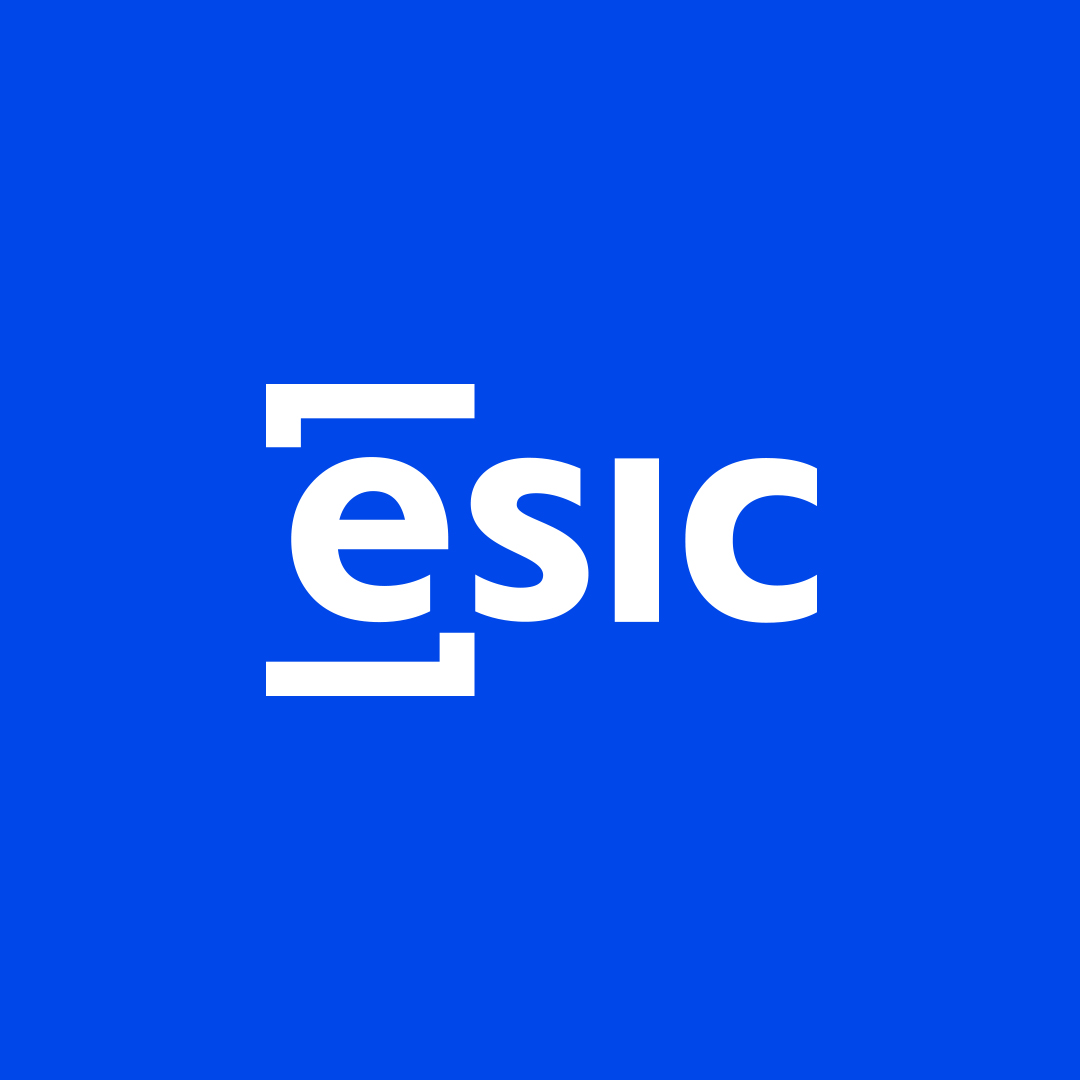
Piensa en grande. No se puede cambiar el mundo al menos que estés dispuesto a cambiarlo
Marketing y Comunicación | Artículo-
Visitas1360
- Enero 2018
- Fecha de publicación
- Enero 2018
- Marketing y Comunicación
- Artículo
Brian es co-autor de Inbound Marketing: Get Found Using Google, Social Media, and Blogs con su socio Dharmesh Shah y co-autor de Marketing Lessons from the Grateful Dead: What Every Business Can Learn from the Most Iconic Band in History, con David Meerman Scott
-o-
ICEMD: For marketers who don’t know the concept yet, how can they embrace inbound marketing?
BH: The first thing to do? Start a blog for your business. Figure out what your buyers are interested in (What questions are they asking when they have lunch together? What problems are they losing sleep over?) write post that answer those questions. The second thing to do? Make sure your blog and your website are optimized for search engines and social media sites. (HubSpot’s free tool Marketing Grader can help you do this.) Finally, figure out which social networks your buyers hang out on, and engage with them there.
Para aquellos profesionales de marketing que no conocen aún el concepto, ¿cómo pueden integrar el inbound marketing?
¿Lo primero? Empezar un blog para su negocio. Averiguar en qué están interesados nuestros clientes (¿Qué preguntan cuándo comemos con ellos? ¿Qué problemas les quitan el sueño?) Y escribir posts que responda a esas cuestiones. ¿Lo segundo? Asegurarse de que tu blog y tu web está optimizados para buscadores y redes sociales (la herramienta gratuita Marketing Grader de Hubspot puede ayudarte a hacer esta parte). Por último, averigua en qué redes sociales se mueven tus clientes, y participa con ellos en esas redes.
ICEMD: Facing the current financial scenario, especially here in Spain, how can small companies with limited budget apply these techniques?
BH: They should adopt inbound marketing event faster! Seriously. Tough economic times call for big changes in your business. You need to rethink how you do everything. And if you rethink your marketing, you’ll end up adopting inbound marketing because it’s a hell of a lot cheaper (our 2012 State of Inbound Marketing Report showed that inbound leads are 61% cheaper that outbound marketing. And if you think of it, it makes sense. Blogging is way cheaper than print advertising. Social media is way cheaper than direct mail. What are you waiting for?
En el escenario financiero actual, especialmente en España, ¿cómo pueden las pequeñas empresas con presupuestos limitados aplicar estas técnicas?
¡Deberían adoptar el inbound marketing aún más deprisa! ¡En serio! Las épocas económicas difíciles requieren grandes cambios en tu negocio. Es necesario volver a pensar cómo hacer cada cosa. Y si repensamos nuestro marketing, terminaremos adoptando el inbound marketing porque es mucho más barato (nuestro informe State of Inbound Marketing 2012 muestra que los leads de Inbound son un 61% más baratos que los leads de outbound marketing). Y si pensamos en ello, tiene sentido. Bloguear es mucho más barato que la publicidad impresa. Las redes sociales son más baratas que el marketing directo. ¿A qué están esperando?
ICEMD: Are Inbound marketing and outbound marketing incompatible, or should they be combined?
BH: I speak in absolutes (outbound marketing is dying; inbound marketing is thriving), but of course few changes are absolute or immediate. You can’t waffle or hesitate about the transition to inbound marketing, but you also don’t need to completely cut off your outbound budget immediately. Just make a serious investment (and an organizational commitment) to a blog, to SEO, to social media, then see where it takes you.
¿Son incompatibles el inbound marketing y el outbound marketing, o deberían ser combinados?
Hablo en términos absolutos (el outbound marketing está muriendo; el inbound marketing está creciendo), pero, por supuesto, algunos cambios son absolutos o inmediatos. No puedes dar rodeos o dudar sobre la transición al inbound marketing, pero no es necesario cortar completamente el presupuesto de outbound inmediatamente. Simplemente es necesaria una inversión seria (y un compromiso de la compañía) en un blog, en SEO, en los medios sociales, y luego ver dónde nos lleva.

ICEMD: Inbound marketing runs on content. How can small companies commit to create a considerable amount of content, and remarkable content?
BH: Small companies often forget this, but they actually have an unfair advantage in the business of creating remarkable content. That’s because passion is the key ingredient in remarkable content, and small companies have way more passion than big companies. Think about IBM, SAP or your mobile phone provider, then think of your favorite local restaurant owner or your local butcher. Who’s more passionate about their business? The restaurant owner and the butcher win every time (the ones who should be in business, at least), and if they have more passion, they’re going to be able to create great content that attracts people to their business.
El Inbound Marketing se basa en el contenido. ¿Cómo pueden las pequeñas empresas crear una cantidad considerable de contenido, y contenido relevante?
Las pequeñas empresas a veces se olvidan de ello, pero en realidad tienen una injusta ventaja en la creación de contenido relevante. Esto es porque la pasión es el ingrediente clave en la creación de este contenido relevante, y las empresas pequeñas tienen mucha más pasión que las grandes. Pensemos en IBM, SAP o los operadores telefónicos, y después pensemos en el dueño de nuestro restaurante favorito o nuestro carnicero. ¿Quién tiene más pasión por su negocio? El dueño del restaurante y el carnicero ganan siempre (al menos los que deberían estar en el negocio), y si tienen más pasión, son capaces de crear gran contenido que atraiga a la gente a sus negocios.
ICEMD: ICEMD is the reference Institute here in Spain in postgraduate courses on Relationship, Direct and interactive marketing, including Ecommerce, being pioneers in teaching these subjects, now with 17 years of experience. Where do you think will be the real focus and the important things to learn about marketing from now on?
BH: I think marketers will need to become experts in two areas: First, content creation. If you want to be a great marketer, you have to be a content machine. That means being a master in one content area (writing, video, design), an ability to get things done in any content area, and, most importantly, the ability to craft compelling narratives across different content areas. Stories sell. The second thing marketers need to learn? Data. Data illiteracy doesn’t fly any more. You have to not only understand data that others produce, but you have to know how to think about problems in an analytical way.
ICEMD es el Instituto de referencia en España en los cursos de postgrado en Marketing Relacionar, Directo y Digital, incluyendo comercio electrónico, siendo pioneros en la enseñanza de estas disciplinas, ahora con 17 años de experiencia. ¿Cuál crees que será el foco y las disciplinas importantes para aprender en marketing a partir de ahora?
Creo que los profesionales del marketing necesitarán convertirse en expertos en dos áreas: primero, en la creación de contenido. Si quieres ser un gran profesional del marketing, necesitas ser una máquina de contenido. Esto significa ser un experto en un área de contenido (escrito, vídeo, diseño), tener la capacidad de llevar las acciones a cabo en cualquier área de contenido y, lo más importante, tener la capacidad de crear narrativas convincentes en áreas de contenido diferentes. Las historias venden.
El segundo área en el que los profesionales necesitan formarse es en análisis de datos. El analfabetismo en datos no puede avanzar más. No sólo necesitas entender los datos que otros producen, sino también pensar sobre los problemas de forma analítica.
ICEMD: Our students are often future entrepreneurs who are now developing their own projects. Which, in your opinion, are the key points to have in mind for someone who wants to start an e-business?
BH: There’s really just one thing that’s more important than anything else: Think big! You can’t change the world unless you set out to change the world!
Nuestros estudiantes son a menudo futuros empresarios que ahora están desarrollando sus propios proyectos. ¿Cuáles son, en su opinión, los puntos clave a tener en cuenta para alguien que quiere empezar un negocio online?
Realmente sólo hay una cosa que es más importante que cualquier otra: ¡Piensa en grande! ¡No se puede cambiar el mundo al menos que estés dispuesto a cambiar el mundo!
ICEMD: Thank you very much Brian!!!
También te puede interesar

Pipedrive: que es, para qué sirve y características
La gestión eficaz del embudo de ventas es uno de los mayores retos para los equipos comerciales. En un entorno cada vez más digitalizado y competitivo, contar con herramientas que ayuden a organizar...
- Publicado por _ESIC Business & Marketing School

Inteligencia cultural: por qué es importante en el entorno laboral global
El 90% de los líderes empresariales de casi 70 países coinciden en que la inteligencia cultural es esencial para el éxito en el entorno laboral actual. En un mundo donde las fronteras comerciales s...
- Publicado por _ESIC Business & Marketing School

¿Qué es una ciudad sostenible?
Una ciudad sostenible es aquella que busca equilibrar el desarrollo económico, la inclusión social y la protección del medio ambiente. Su objetivo es garantizar una buena calidad de vida para las g...
- Publicado por _ESIC Business & Marketing School

